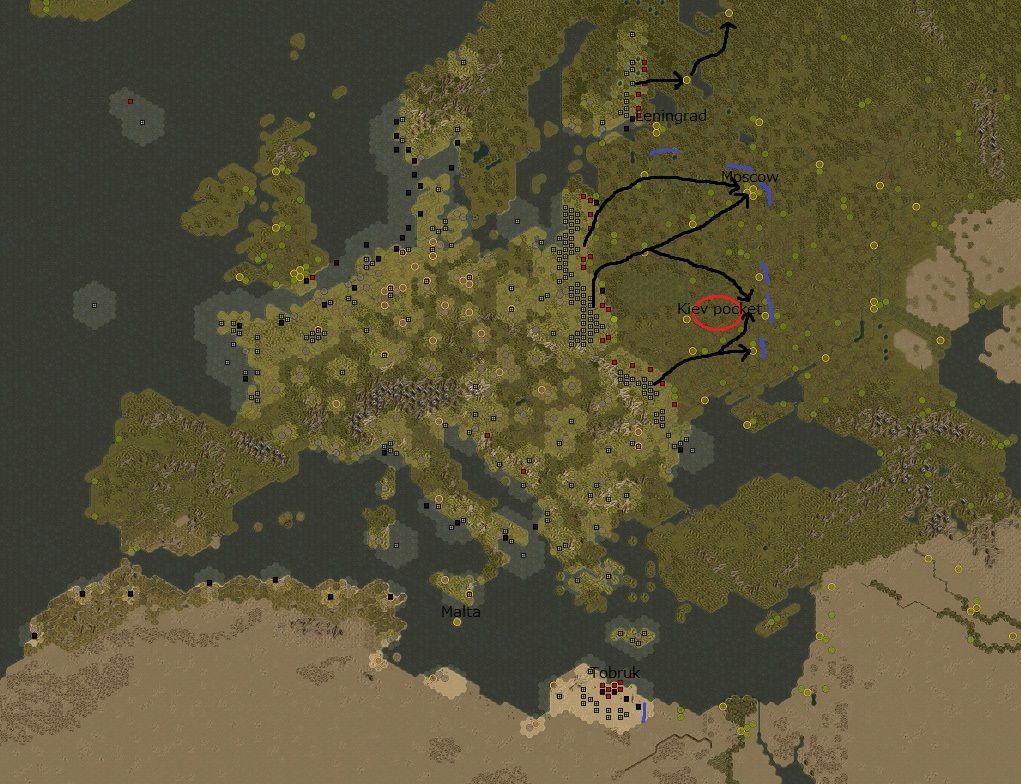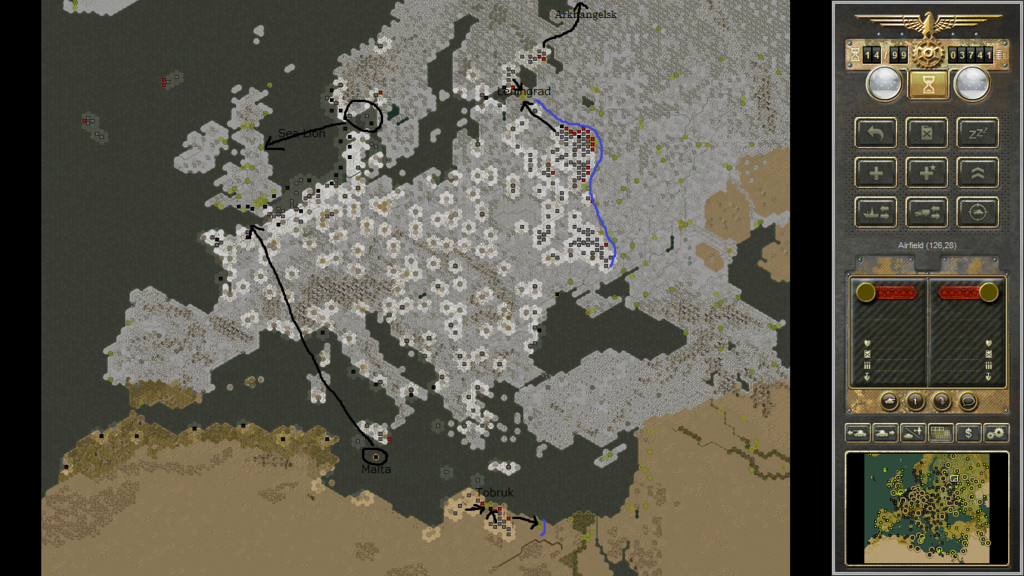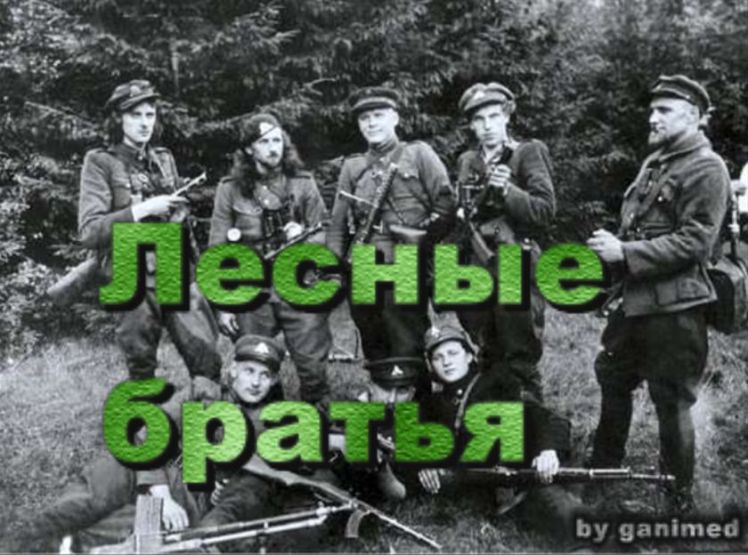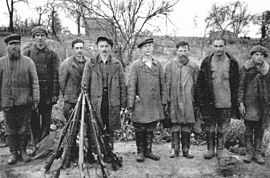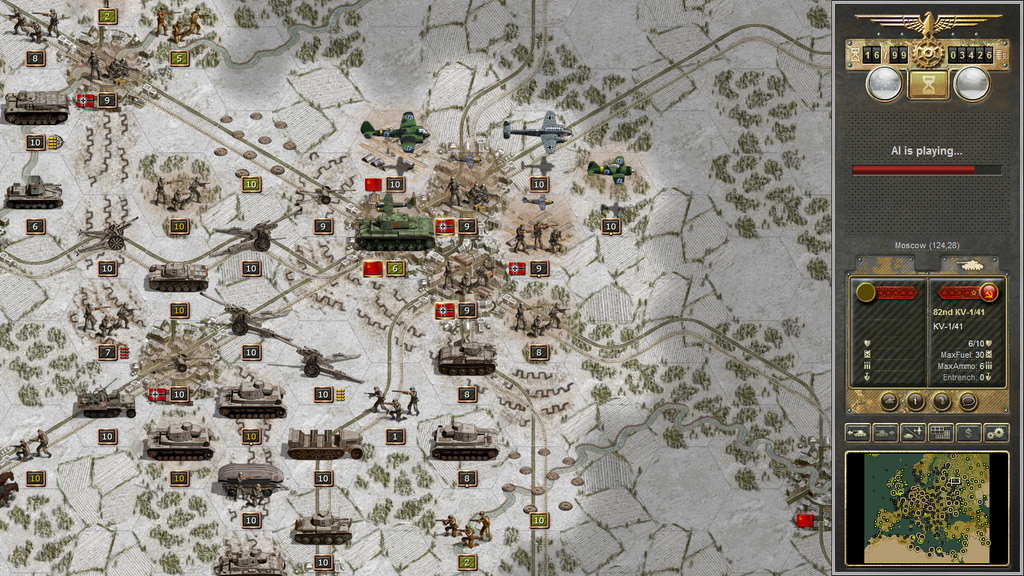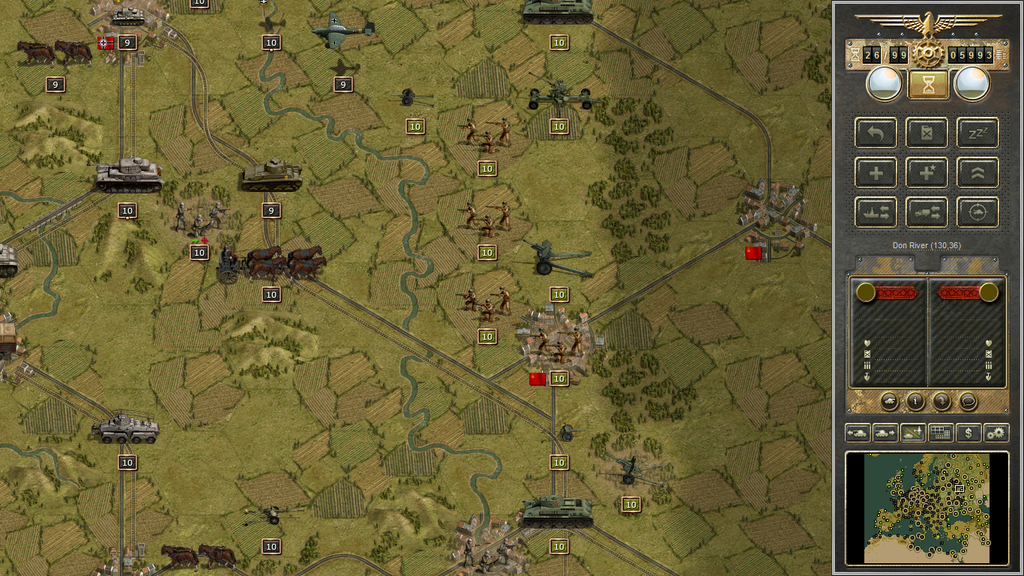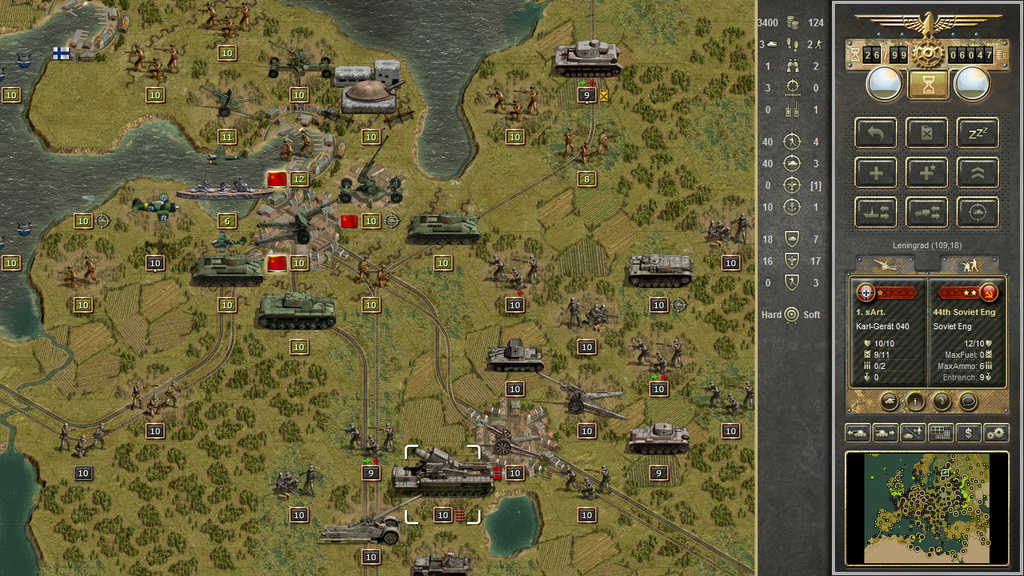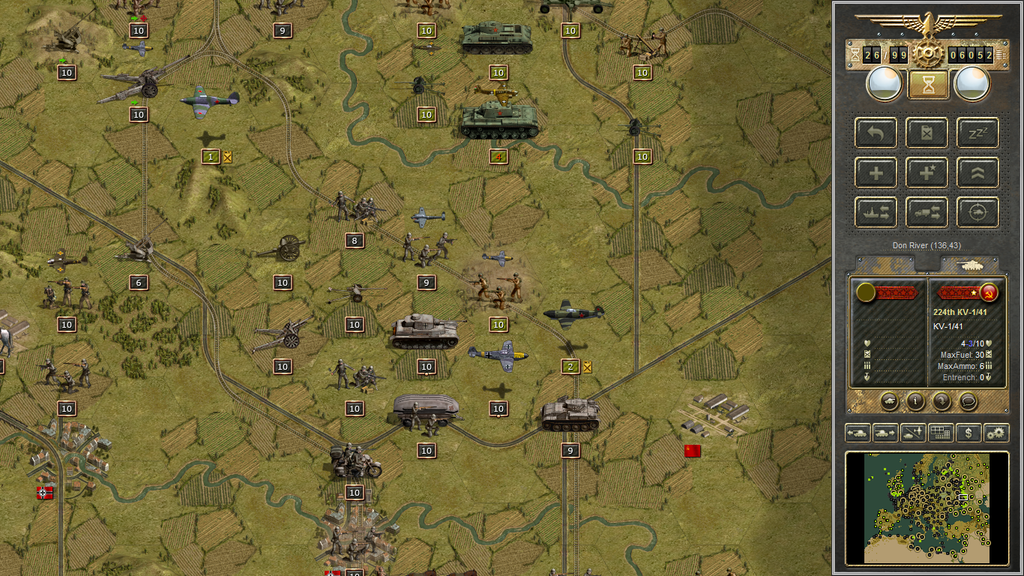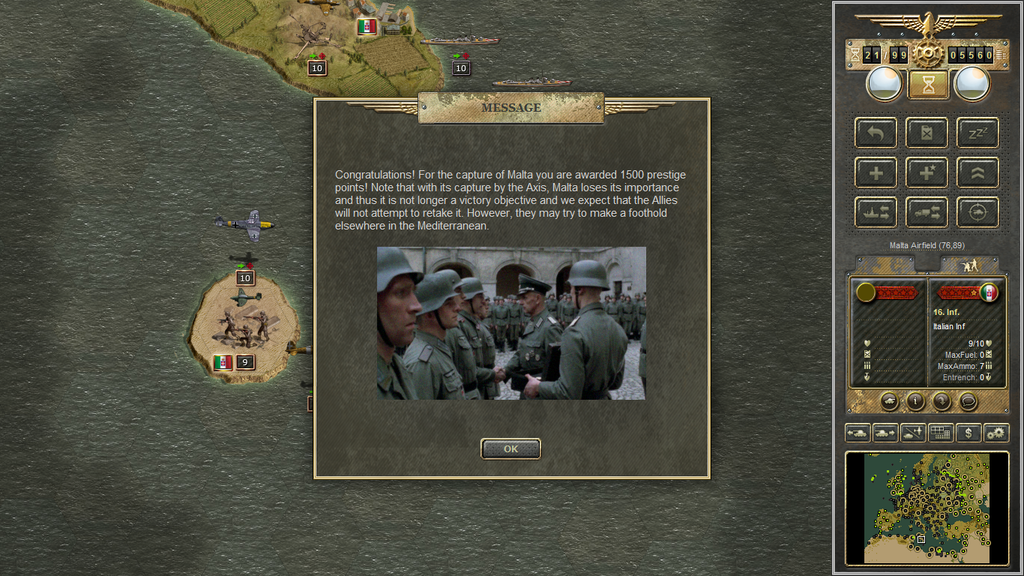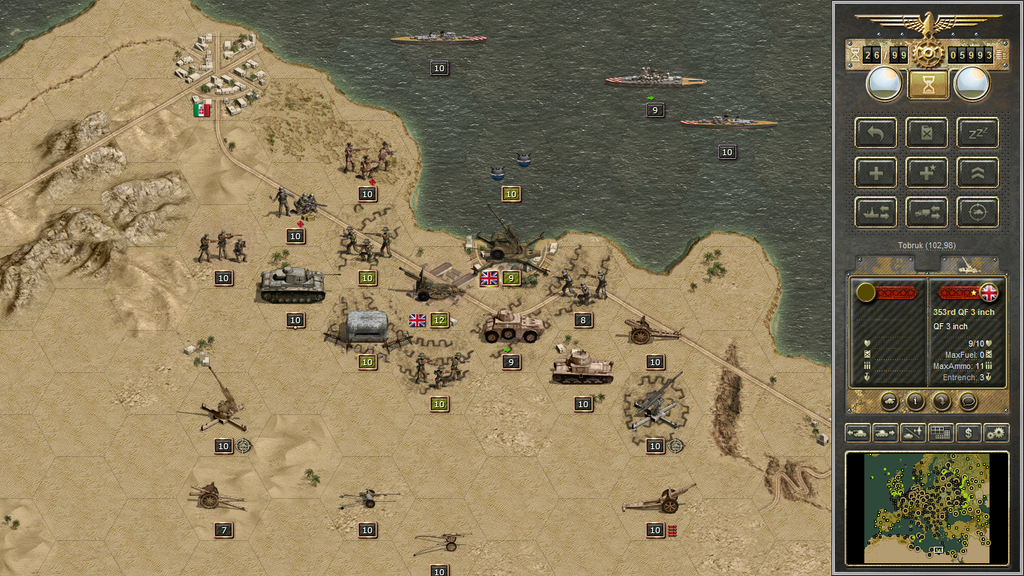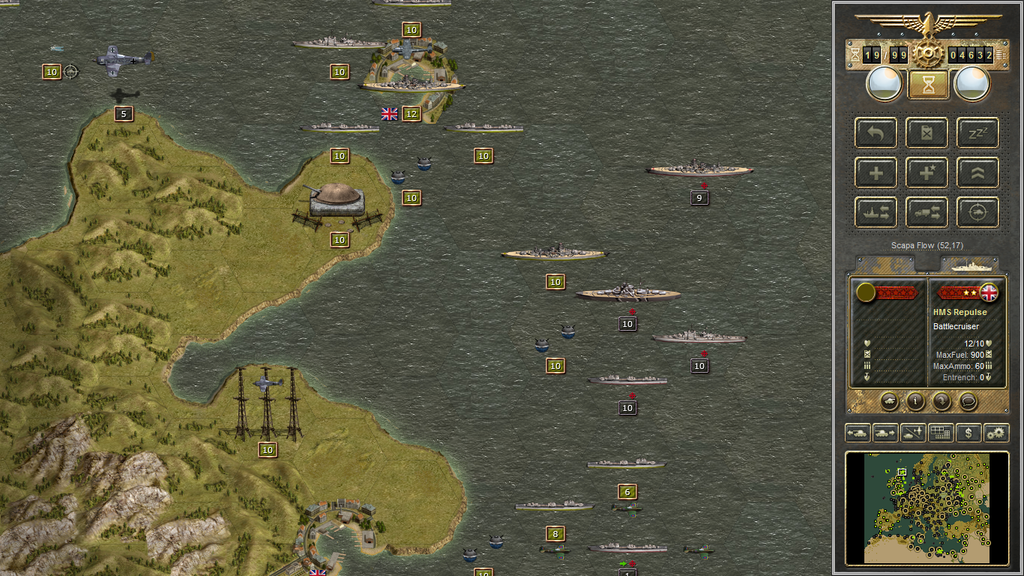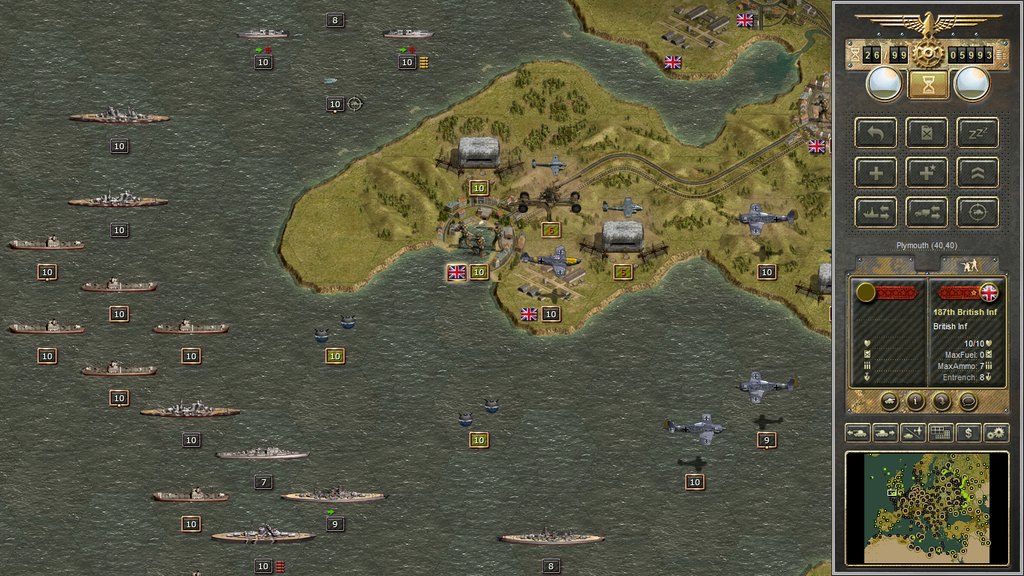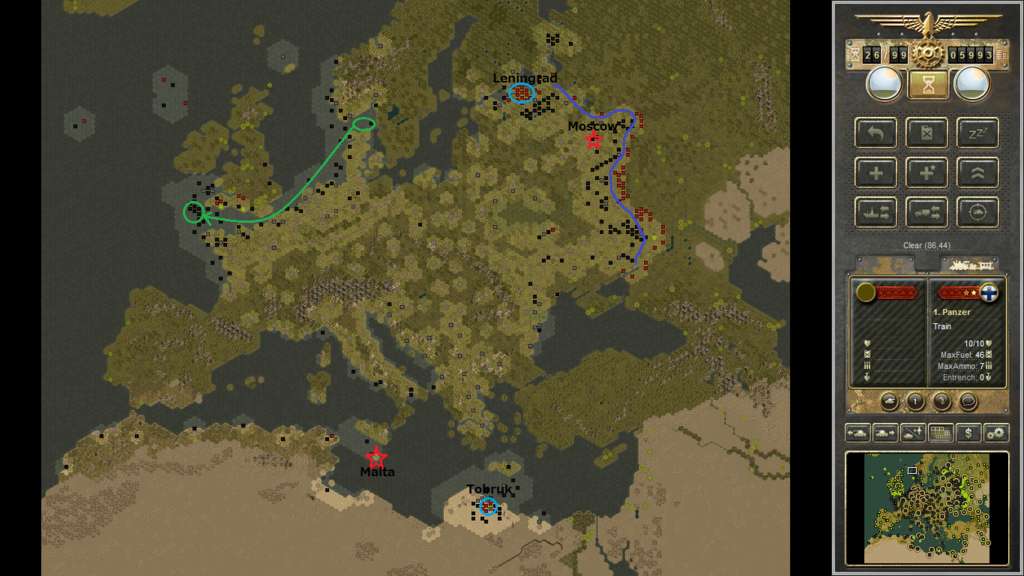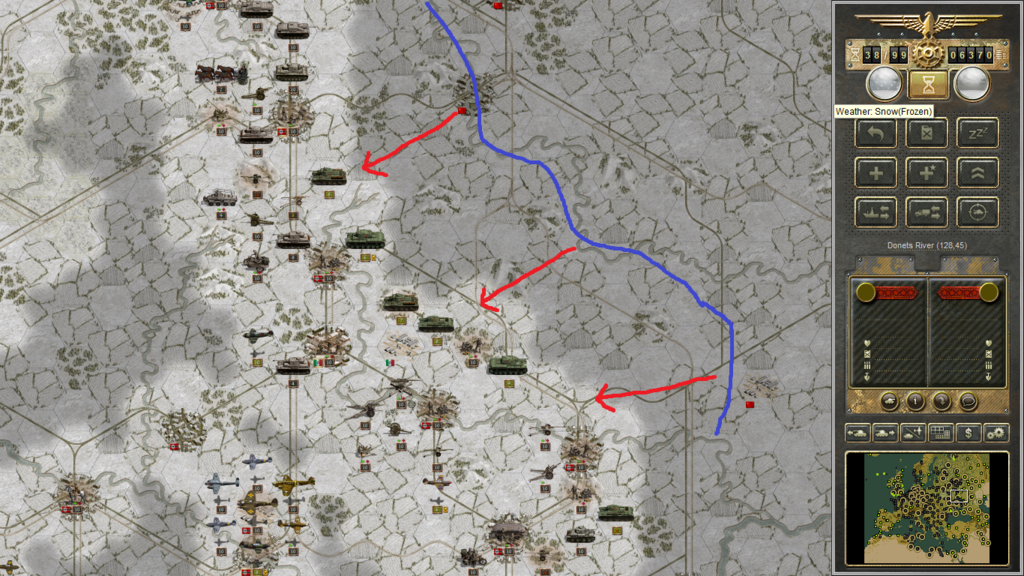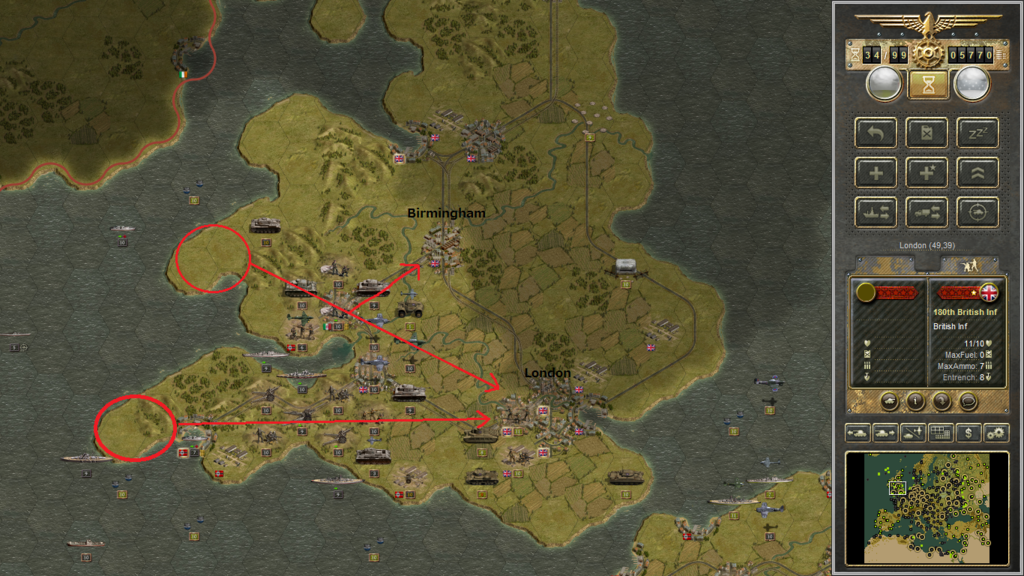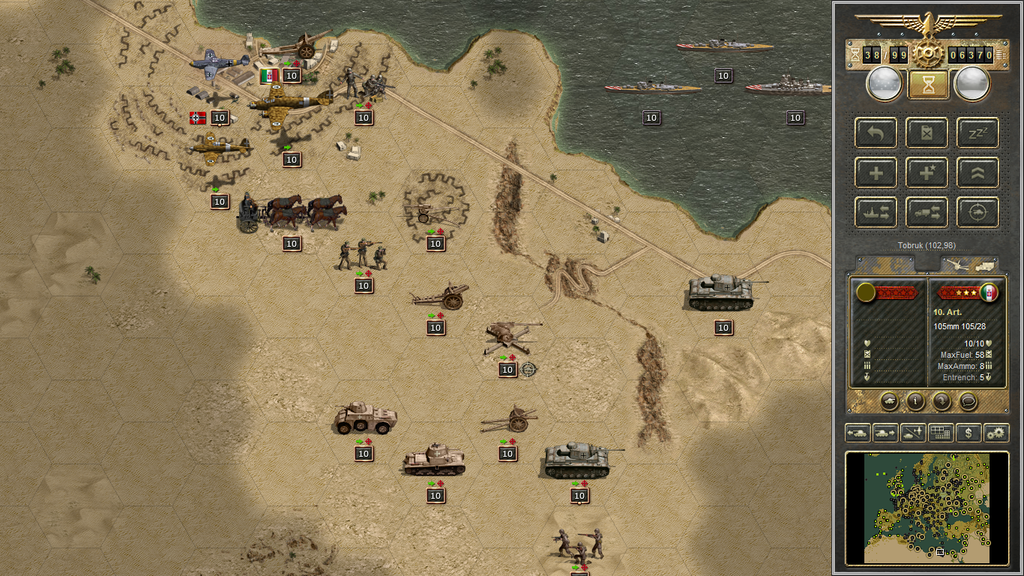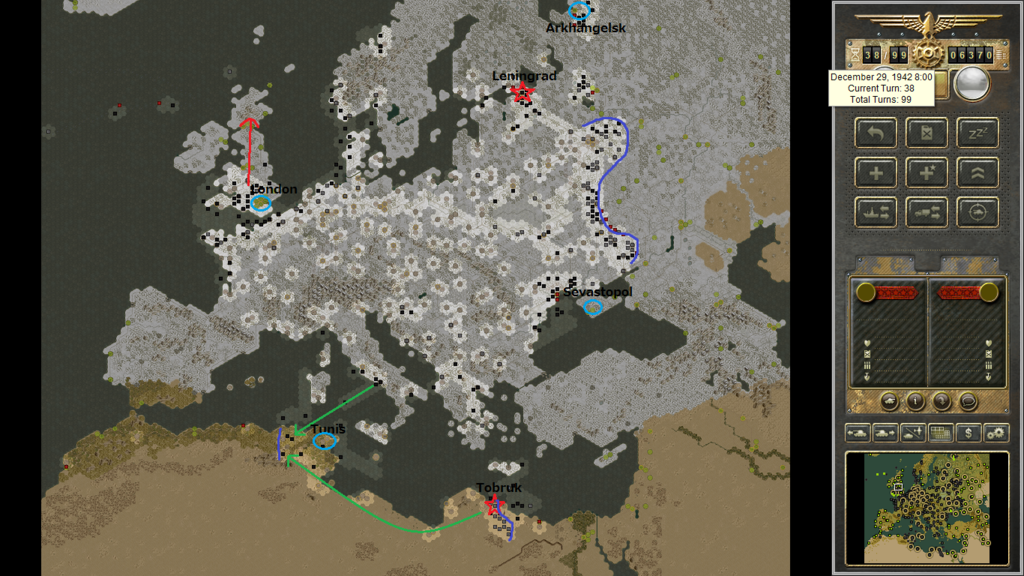June 1941 – December 1941
Our troops batter the poorly prepared Russian forces, catching many of the Russian airforces on the ground. This allows us air superiority and the Luftwaffe roams over the battlefields striking at will. Whilst tempting to push over the entire Eastern front, we are trying to stay focused on the original objectives – advancing towards Moscow, encircling the troops around Kiev and mostly leaving Leningrad and Odesk unmolested. However this focusing of our troops has created bottlenecks. Poor logistics planning has resulted in many of our stronger forces, such as the Panzer III’s and IV’s, being caught in the bottleneck, whilst our weaker units such as infantry and Panzer II’s are at the forefront of the battle. It is lucky that the Russian forces are so unprepared, as otherwise they would likely be able to stall our attacks. Adding to our logistics problems, partisans are disrupting the rail lines. These are swiftly dealt with by our Italian, Hungarian and Romanian allies, but necessitate the stationing of many of these units in captured territory to protect against further partisan activity. Whilst not so pressing now, this could pose a drain on our resources in the future.
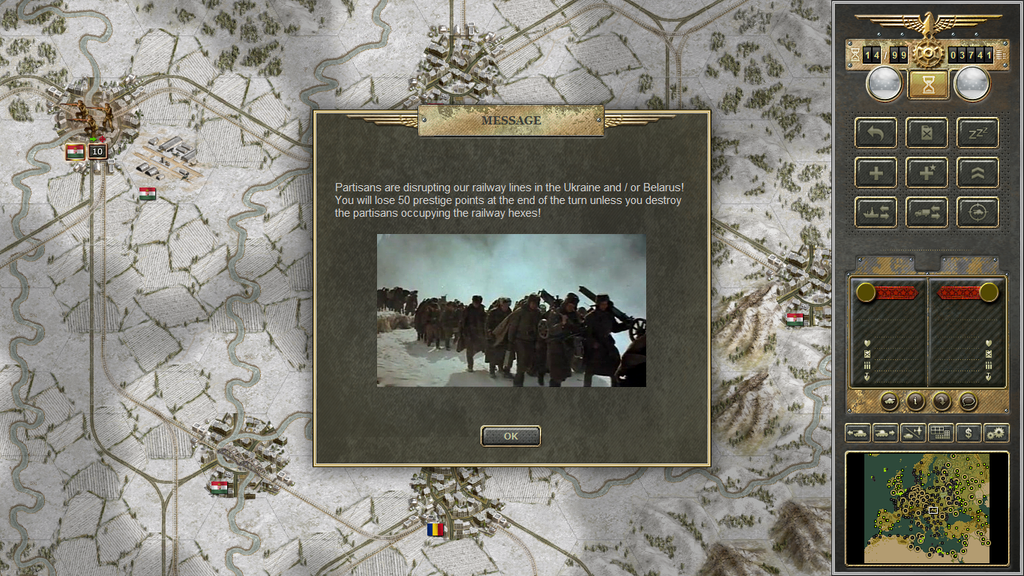 Partisan activity necessitates the deployment of our units in previously captured territory.
Partisan activity necessitates the deployment of our units in previously captured territory.
Just as winter sets in we complete the strategic encirclement of the Kiev pocket. Whilst we suffered some casualties in this movement, it would have been much more if we had simply assaulted the Russian troops directly. The loss of so many troops and equipment is a massive blow to the Russian defensive effort.
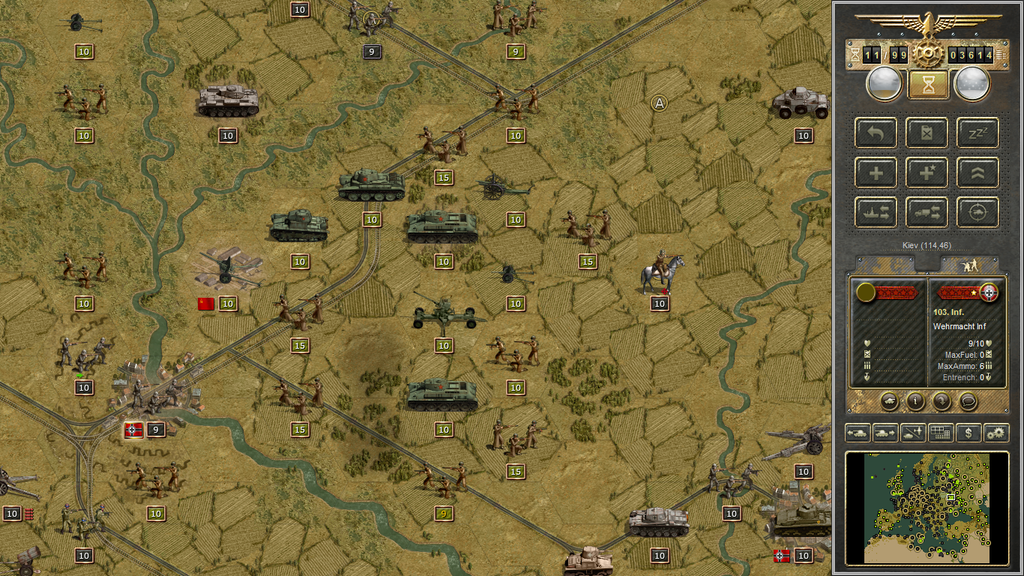 Closing the pincers around the Kiev Pocket
Closing the pincers around the Kiev Pocket
Around the same time, our troops further North negotiated around the entrenched infantry and obstacles to reach the outskirts of Moscow. However, with Russian reinforcements arriving in greater and greater numbers and supported by the formidable T34 tanks, we have been unable to fully capture the city by the predetermined deadline of Christmas. Instead, a very bloody battle for the city and airfields is ongoing, with our forces both advancing and retreating as the battle ebbs and flows, but with German troops always maintaining a grip on at least a part of the city.
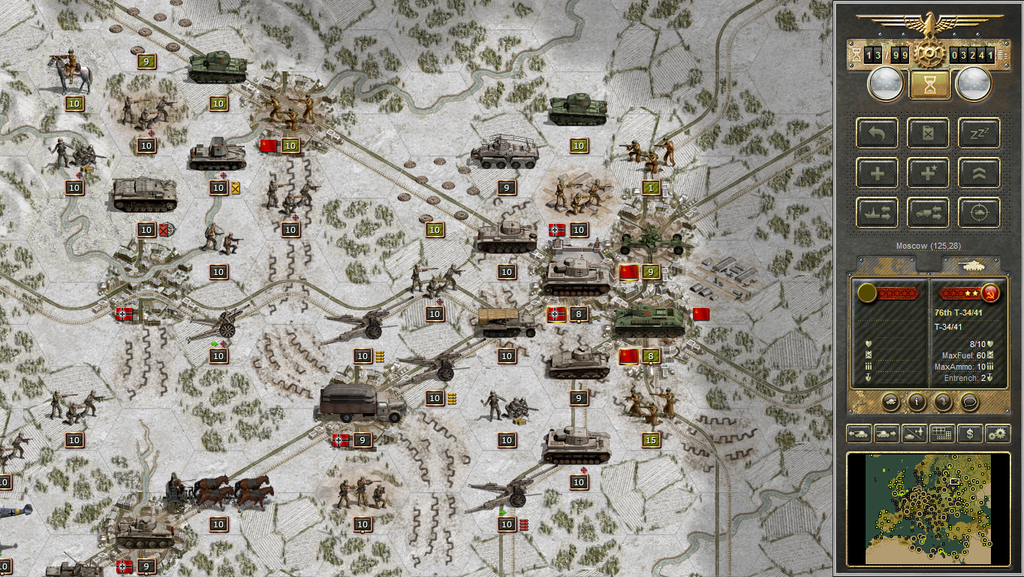 Battle for Moscow
Battle for Moscow
Whilst highly dependent on the number of Russian reinforcements that are committed to the battle for Moscow, we are hopeful that we will be able to fully capture the city and its airfields by the end of January.
With the battle for Moscow still ongoing, our scheduled transfer of troops to the beaches of Belgium and the Netherlands in preparation for operation Sea Lion has been delayed. Our surface fleet have had limited impact in weakening the British land defences and engaging the British fleet, as Allied air superiority have forced our fleet to stay close to the coast where our AA defences can protect them. We have also been hindered by mining of the waters off Northern England and Scotland. However, with the new Fw-A2 model becoming available we have committed significant resources to upgrading several of our fighter squadrons to this model, which should allow both our surface fleet and bomber squadrons to adopt a much more aggressive stance. Unfortunately the transfer of our air forces to the English Channel has coincided with bad weather, which has seen the Luftwaffe mostly grounded. Sea Lion has therefore been rescheduled for late February/early March 1942 to allow sufficient buildup of our forces and reduction of enemy defences prior to the landings.
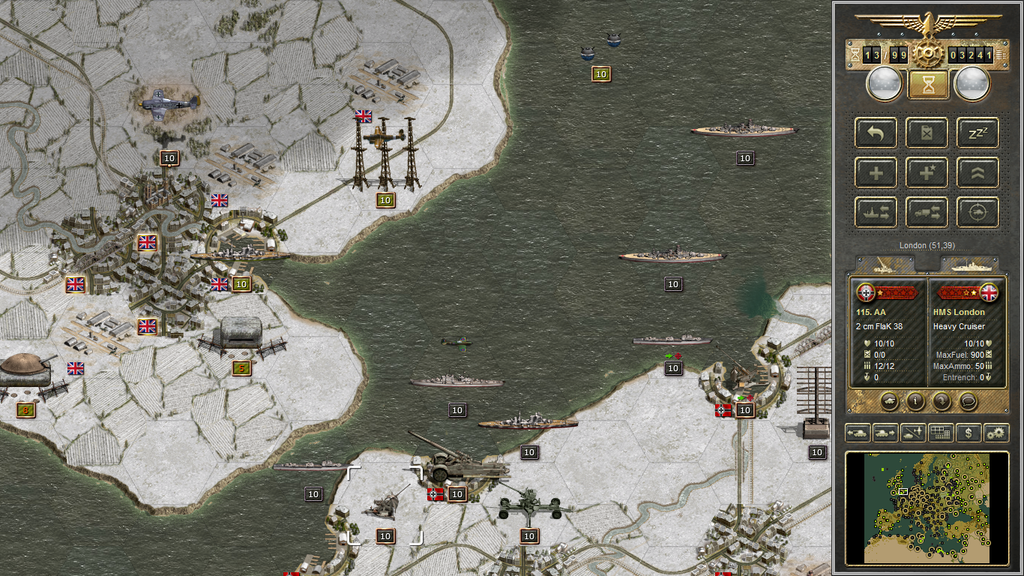 English channel
English channel
The Battle of the Atlantic has seen us suffering heavy losses in u-boats as the Allies have a strong destroyer force protecting the shipping lanes. However we have still had some success in harassing the Allied merchant fleet, which has assisted in hindering the Allied forces.
Finnish troops with German support manage to capture Petrozavodsk in late December and are ready to commence their advance on Arkhangelsk to the extreme North. The harsh terrain favors the defenders and we are hoping that the highly experienced Finnish troops will be able to deal with the heavily entrenched Russian defenders who are sure to be defending the approaches.
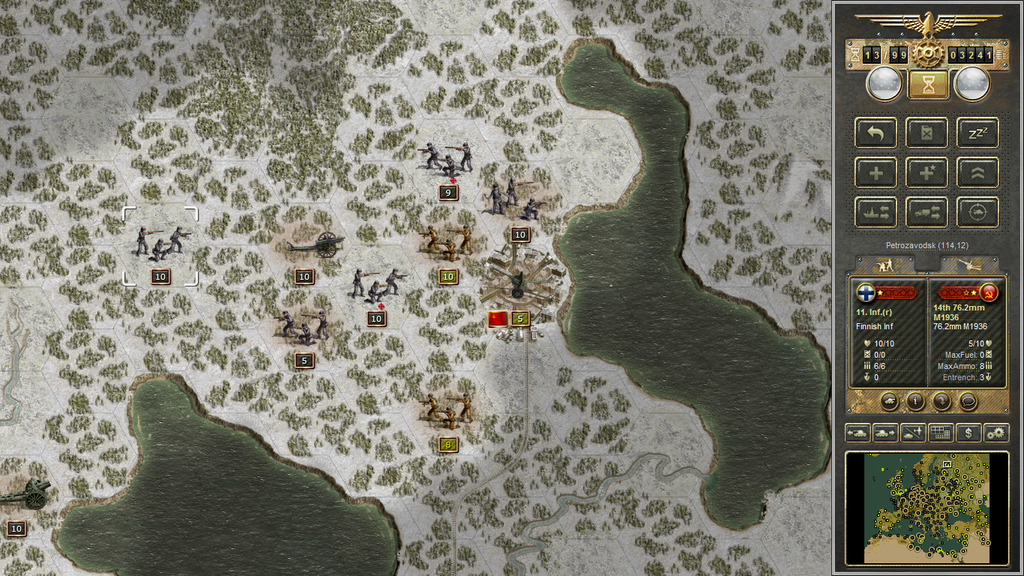 The Finnish about to capture Petrozavodsk from the Russian defenders. Another long slog through harsh terrain awaits before they can reach Arkhangelsk to the North.
The Finnish about to capture Petrozavodsk from the Russian defenders. Another long slog through harsh terrain awaits before they can reach Arkhangelsk to the North.
In late October the British launched Operation Crusader to relieve their forces in Tobruk. Whilst the overstrength Crusader tanks caused considerable damage, we were able to funnel them into a choke point at Halfaya Pass, where they were bombarded by artillery, before being engaged by our 88’s. Whilst this saw the British suffer significant casualties, the bad weather denied us support by the Luftwaffe and the large number of strong British troops forced us into a strategic withdrawal. This is only a temporary measure, however, as once good weather returns and we are able to bring the Luftwaffe to bear, we will re-engage the enemy outside of Tobruk and renew the siege. It is hoped that we will be able to divert some of our surface fleet from Malta to assist in this effort.
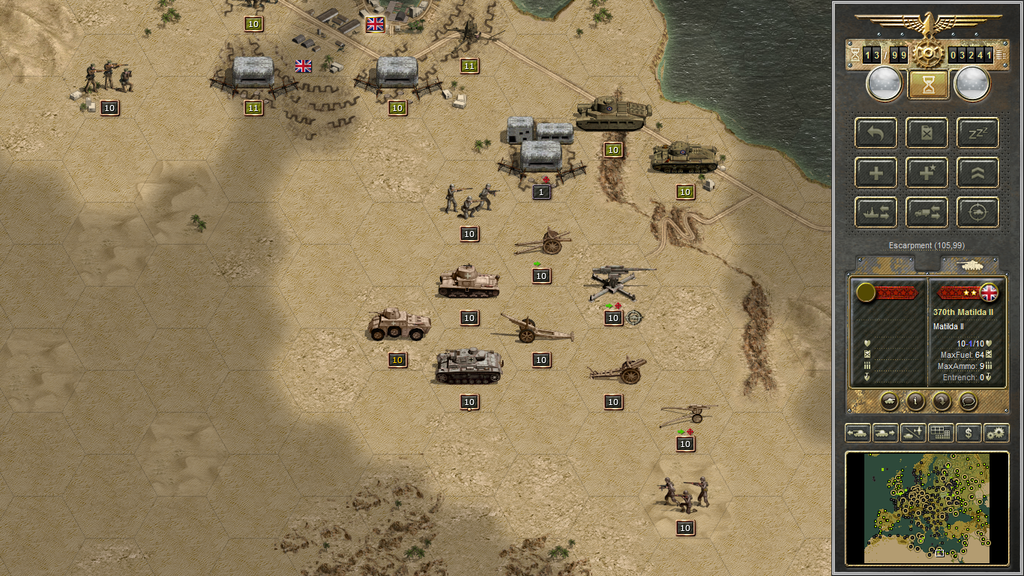 Tobruk and Operation Crusader (note there are more British tanks and infantry hidden in the fog of war)
Tobruk and Operation Crusader (note there are more British tanks and infantry hidden in the fog of war)
Unfortunately our naval and air bombardment of Malta is not proceeding as planned. A strong and ever growing Allied fighter presence has limited the impact of our air campaign and Allied submarines continually harass our surface fleet. The increasingly bad weather has seen the Luftwaffe mostly grounded for the last 2 months of the year and we have made relatively little impact on Malta. We have therefore diverted fighter squadrons from North Africa and Russia to assist in eliminating the Allied fighters once the weather clears. We have also brought in the hero Hans Rudel and his squadron of Junkers to assist in the effort. Contingent upon the weather improving, we are hoping that Malta will fall by the end of February 1942. Once this objective is complete, we will divert the Regia Marina to assist in taking Tobruk, whilst most of the Luftwaffe and Regia Aeronautica will be transferred North to assist in Operation Sea Lion.
